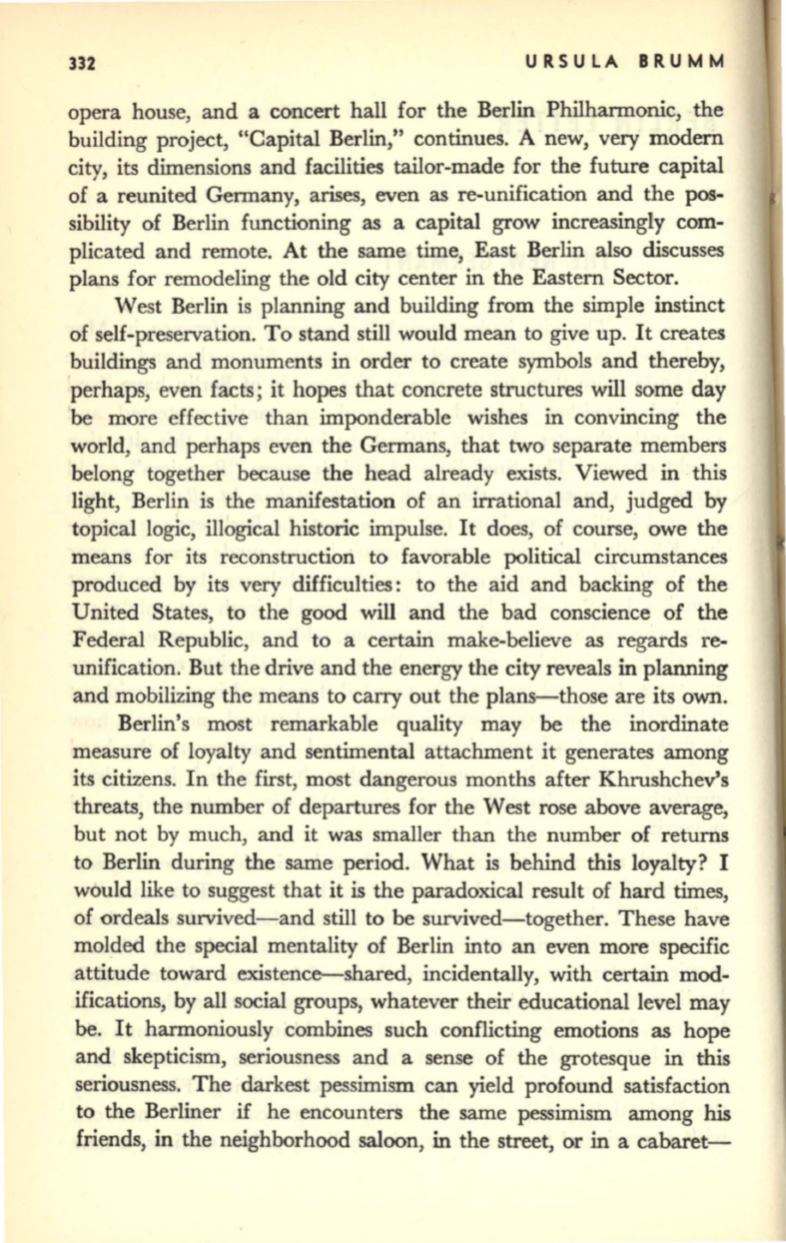
332
URSULA
BRUMM
opera house, and a concert hall for the Berlin Philharmonic, the
building project, "Capital Berlin," continues. A new, very modern
city, its dimensions and facilities tailor-made for the future capital
of a reunited Germany, arises, even as re-unification and the pos–
sibility of Berlin functioning as a capital grow increasingly com–
plicated and remote. At the same time, East Berlin also discusses
plans for remodeling the old city center in the Eastern Sector.
West Berlin is planning and building from the simple instinct
of self-preservation. To stand still would mean to give up. It creates
buildings and monuments in order to create symbols and thereby,
perhaps, even facts; it hopes that concrete structures will some day
be more effective than imponderable wishes in convincing the
world, and perhaps even the Germans, that two separate members
belong together because the head already exists. Viewed in this
light, Berlin is the manifestation of an irrational and, judged by
topical logic, illogical historic impulse. It does, of course, owe the
means for its reconstruction to favorable political circumstances
produced by its very difficulties: to the aid and backing of the
United States, to the good will and the bad conscience of the
Federal Republic, and to a certain make-believe as regards re–
unification. But the drive and the energy the city reveals in planning
and mobilizing the means to carry out the plans-those are its own.
Berlin's most remarkable quality may be the inordinate
measure of loyalty and sentimental attachment it generates among
its citizens. In the first, most dangerous months after Khrushchev's
threats, the number of departures for the West rose above average,
but not by much, and it was smaller than the number of returns
to Berlin during the same period. What is behind this loyalty? I
would like to suggest that it is the paradoxical result of hard times,
of ordeals survived-and still to be survived-together. These have
molded the special mentality of Berlin into an even more specific
attitude toward existence--shared, incidentally, with certain mod–
ifications, by all social groups, whatever their educational level may
be. It harmoniously combines such conflicting emotions as hope
and skepticism, seriousness and a sense of the grotesque in this
seriousness. The darkest pessimism can yield profound satisfaction
to the Berliner if he encounters the same pessimism among his
friends, in the neighborhood saloon, in the street, or in a cabaret-


